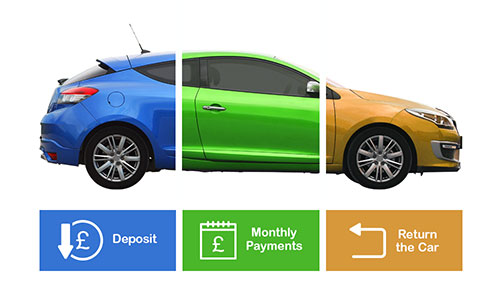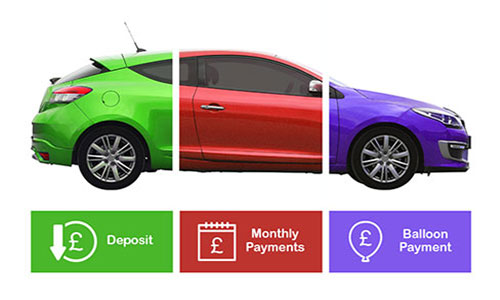
A comprehensive guide to refinancing a car
Last updated September 08, 2021
Considering refinancing your car, but not sure where to start? Whether your goal is to lower your monthly premiums, switch to a different type of car finance, or cut the total loan interest on your car, our guide can help!
In this guide, we'll explain how car financing works, before walking you through four simple steps to refinance your car.
Value your car in under 30 seconds
How car refinancing works
To refinance your car loan, you need to apply for a new loan with a lender and then use it to pay off your existing loan. This means that the new lender’s name will appear on your car’s title and you’ll make payments to the new lender until you’ve paid the outstanding balance.
People may consider refinancing their car for one of two reasons:
- To free up cash by lowering their loan payments, which can be achieved by getting a longer loan term. In some cases, if you want to get rid of the car and cancel your car finance altogether, this is possible too.
- To save on the total cost of a car loan – i.e. if you can get a lower interest rate by refinancing, you will save on total interest and potentially lower your payments as well.
How to refinance a car
Now we know how it works, let’s see if car refinancing is right for you.
1. Find out if refinancing makes sense for you
You might consider refinancing your car if one or more of the following situations applies to you:
-
You’re struggling with your current payments
If, for whatever reason you’re struggling with your current payments, refinancing to a loan with a longer term could reduce your monthly payments. However, you may end up paying back more in the long-term if you get a loan over a longer term on the same or higher interest rate.
-
You have had a major life event
Moving to a new house, having children, sending the kids to university – life is always changing. Such events may prompt you to seek a loan with a longer term to reduce your monthly payments and spread the cost of your car further.
-
Interest rates have declined
Changes in the economy might result in a lower interest rate, so it’s worth shopping around. Even a small interest rate reduction can lead to cash savings over the long term, potentially enabling you to pay off your loan quicker than originally planned.
-
Your credit score has improved
If your credit score has improved since you took out your initial car loan, you might qualify for a better interest rate. Simple things like paying your bills on time can improve your score, so it’s worth checking your credit report online.
-
Calculate how much your car is worth
It is also essential to assess your car’s approximate value – which you can do with a free online car valuation. To refinance your car loan, you can owe slightly more than the value of your car. If you owe twice as much as the car’s value, however, refinancing can be difficult.
2. Shop around for a competitive loan
You may be able to find a competitive loan rate by shopping around online. Here are a few tips to help you find the best deal:
-
Prepare your documents
Lenders will likely require documentation such as your driving licence, car registration and car vehicle identification number (VIN), so it’s best to prepare these in advance. It’d also be helpful to have the exact figure you need to pay off on your existing loan to hand, as this is the amount that you’ll need to refinance.
-
Always read the fine print
Lenders often stipulate eligibility rules for refinancing a car, for example, a minimum outstanding balance of £2,500 and less than 100,000 miles on the clock – given that mileage affects value. Save yourself some time by checking if you meet the eligibility criteria in advance. Also bear in mind that lenders may use a hard credit enquiry to check your eligibility, which can negatively impact your credit score if you have many in a short space of time.
-
Complete your application within 15 days
If your application is a hard credit inquiry, it’s best to submit all your loan applications within 15 days. That way, the applications are grouped and treated as one, which reduces the impact on your credit score.
3. Evaluate your offers
An online car loan calculator can help you determine how much refinancing your car might cost and calculating how much you could save and how quickly you could pay off the loan will enable you to make an informed decision. If you decide to refinance your car, you can retain the length of your current loan or consider these options:
-
Pay off the loan more quickly
If you’re used to making loan payments of a specific amount, you may be able to retain the monthly cost but shorten the length of the loan. This will help you save money as you’ll pay less interest over the full loan term.
-
Extend the loan
If your budget is stretched, you could extend the loan term to lower your monthly payments. Bear in mind that this will result in more interest and therefore a higher total cost in the long run, but it may be a sensible option if you otherwise expect to struggle to make your regular repayments.
4. Complete the paperwork
If you decide to refinance, your chosen lender will send you the relevant paperwork to complete. You’ll sign new loan documents, and the lender will create a new loan for you. Your new loan will have a new interest rate and a term length, which you will determine together with the lender. Your new lender will pay off your old loan, and you’ll begin making payments to your new lender at the agreed rate.





